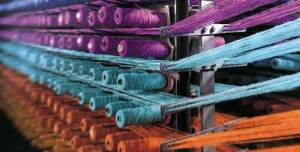u may have been told that your application could benefit from a filter press , but you don’t fully understand how filtration equipment or technology works, or how it can help your operation.
The filter press is a kind of effect that uses external force to make the liquid pass through the medium to form a pressure difference to achieve solid-liquid separation. This external force can be the liquid’s own gravity or pressure (this situation is generally used in vertical filter press equipment. ), it can also be the pressurization of the liquid by the mixed liquid pump, it can also be the pressurization of the liquid by the filter press equipment (this is the most used), or it can be the air pressure (this situation is generally used on the vacuum filter press equipment) Wait for what you can. The medium is generally filter cloth, which is one of the most important parts of the filter press equipment, which directly affects the filtration and separation effect of the filter press.

Leading filter press industry, emerging industries open up new space for growth
Perhaps you’ve been told that your application could benefit from a filter press, but you don’t fully understand how the technology or filtration equipment work or how it could help your operation.
Safi Sazan Safa is the biggest, first and leading manufacturer of filter presses and advanced liquid filtration technology. Here, we’ll explore the question – how does a filter press work? We will also examine the applications where they are most frequently utilized, and some of Micronics’ standard and custom filter press solutions.
Safi Sazan Safa Leader in the filter press industry, performance is improving, The company is committed to the production and sales of filter press machines, supporting equipment and accessories.
Industry leading enterprises, products are widely used in environmental protection, minerals and processing, chemicals, food, medicine, new energy materials, sand and gravel aggregates and other fields. Environmental protection industry: policy-driven brings stable growth. New energy industry: Demand continues to maintain a high degree of prosperity.
As the company continues to expand its applications in emerging industries, its market share has risen steadily.
What is a Filter Press?
A filter press is a piece of equipment used in liquid/solid separation. Specifically, the filter press separates the liquids and solids using pressure filtration, wherein a slurry is pumped into the filter press and is dewatered under pressure. Basically, each filter press is designed based on the volume and type of slurry that needs to be dewatered. Micronics, Inc. is a trusted expert in liquid/solid separation and offers a wide range of filter press types and capacities to suit specific application needs for trouble-free, economical dewatering. These include configurations such as sidebar automatic, and hand filter presses.
The four main components of a filter press include the frame, filter plates, manifold (piping and valves), and filter cloth, a key ingredient for optimizing filter press operations.
How Does a Filter Press Work?
The working principle of filter presses is that slurry is pumped into the machine such that solids are distributed evenly during the fill cycle. Solids build up on the filter cloth, forming the filter cake; the filtrate exits the filter plates through the corner ports into the manifold, yielding clean filtered water.
Filter presses are a pressure filtration method and as such, as the filter press feed pump builds pressure, solids build within the chambers until they are completely chock-full of solids, forming the cake. Once the chambers are full, the cycle is complete and the filter cakes are ready to be released. In many higher capacity filter presses, fast action automatic plate shifters are employed, speeding cycle time. Some filter presses are specifically designed for fully automatic, 24-hour operation in a harsh environment such as mines or chemical manufacturing plants.
Filter Press Applications
Filter presses can be built in a wide range of sizes, from small, lab-scale 150 mm presses, to those with much larger capacities, such as those with 1500 and 2000 mm filter plates. Filter presses are used for liquid/solid separation in an extensive range of industries and applications including:
- Food and beverage processing
- Chemical manufacturing
- Mining
- Power generation
- Aggregates, asphalt and cement production
- Steel mills
- Municipal plants
- And more…
The application of filter presses in the field of new materials continues to expand. Filter presses have been applied to zirconia, graphene, magnetic In new material industries such as permanent materials, nanomaterials, polylactic acid and new polymer materials. With the above industry’s With the continuous development and the advancement of filtration equipment technology, the application field and market scale of filtration equipment will continue to expand.
Open up the use of sand and gravel industry. In order to meet the development needs of the sand and gravel industry, smart sand and gravel Wastewater zero discharge system, this product has the characteristics of large processing capacity, high efficiency, low operating cost, intelligent unattended, etc.

Customizing a Filter Press for Your Application Needs
The industry, application and operational considerations will guide specifics such as the overall design, filtration capacity, number of chambers, filter plate size, materials of construction, as well as additional features/systems such as automatic plate shifters, cloth washing system, drip trays, cake shields and safety light curtains. Design of a filter press depends on a host of factors such as filtration cycle time, cake dryness required, cloth life, whether manual or automated plate shifting is desired, and many other factors.
Contact the Experts at Safi Sazan Safa
You may also find it interesting to read this article: What is filter press clothes ?!?




